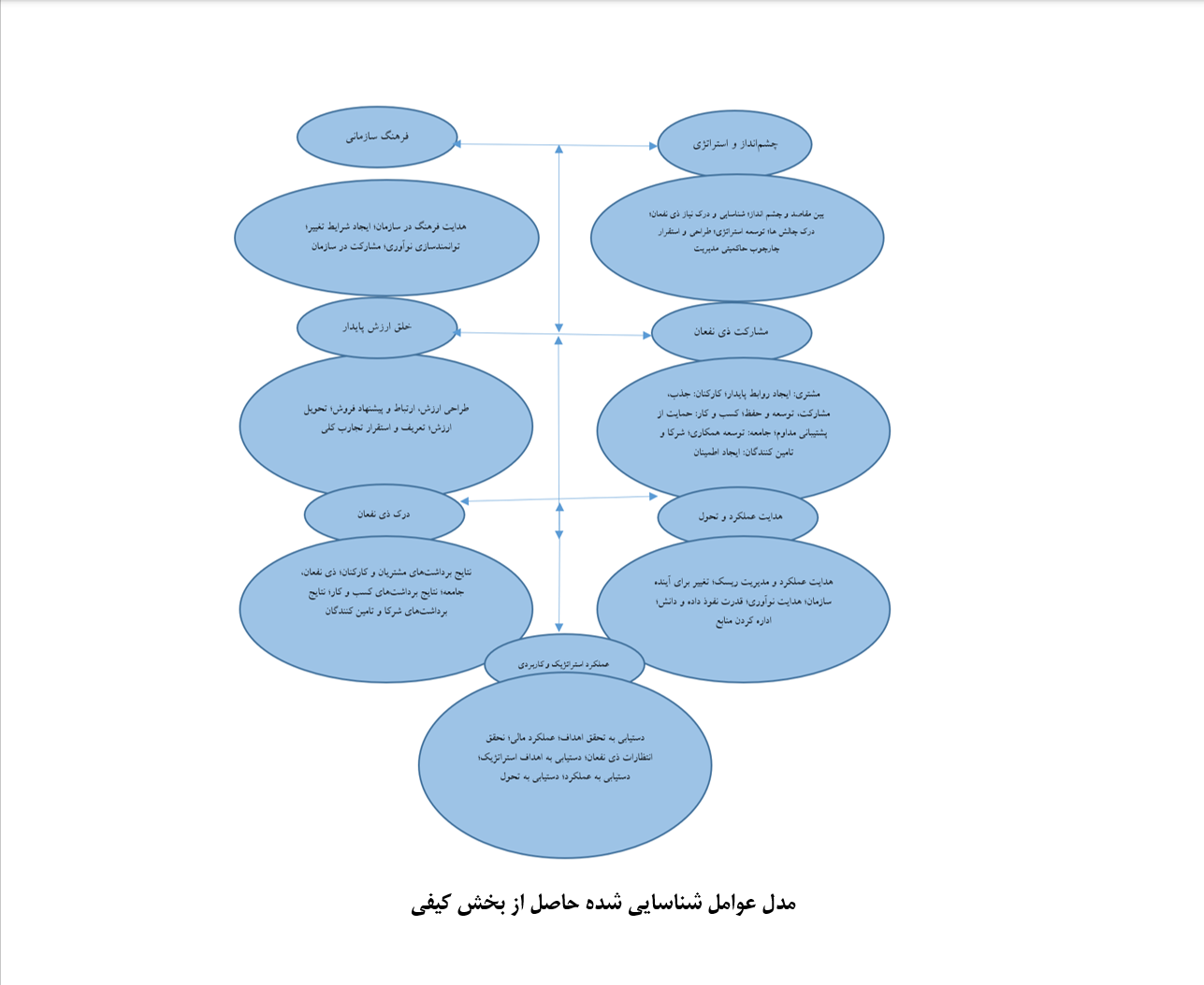Providing the EFQM Model for Improving Preschool Education in Shiraz
Keywords:
Organizational Excellence Model, Preschool Education, EFQMAbstract
This research aimed to introduce a suitable EFQM (European Foundation for Quality Management) organizational excellence model for preschool education in the city of Shiraz. The research method was a mixed-method approach (qualitative-quantitative), and the statistical population included scientific, qualitative, and quantitative documents. The qualitative section comprised university experts (n = 21), while the quantitative section included a sample of 97 university experts. Non-random snowball sampling was used for the qualitative section, and cross-sectional random sampling was employed for the quantitative section. Data collection tools included coding, semi-structured interviews, and a researcher-made questionnaire. Qualitative data were analyzed using grounded theory, while a t-test was used for quantitative data analysis. The findings identified the dimensions and key components of an appropriate organizational excellence model for preschool education, which included objectives, vision and strategy, organizational culture and leadership, stakeholder engagement, sustainable value creation, performance improvement and transformation, stakeholder perspectives, and strategic and operational outcomes.
Downloads
References
Bocoya-Maline J, Rey-Moreno M, Calvo-Mora A. The EFQM excellence model, the knowledge management process
and the corresponding results: an explanatory and predictive study. Review of Managerial Science. 2023:1-35. doi:
1007/s11846-023-00653-w.
Rodríguez-Mantilla JM, Martínez-Zarzuelo A, Fernández-Cruz FJ. Do ISO: 9001 standards and EFQM model differ
in their impact on the external relations and communication system at schools? Evaluation and Program Planning.
;80:101816. doi: 10.1016/j.evalprogplan.2020.101816.
Fonseca L, Amaral A, Oliveira J. Quality 4.0: The EFQM 2020 Model and Industry. 2021.
Jahaniyan R, Ahmadpour M, editors. Excellence in School Management, a Prerequisite for Transformation in
Education2023.
Sütőová A, Teplická K, Straka M. Application of the EFQM Model in the Education Institution for Driving
Improvement of Processes towards Sustainability. Sustainability. 2022;14(13):7711. doi: 10.3390/su14137711.
Kaplani G, Zafiropoulos K. A model of quality assurance in primary education management. The case of Greece.
Cogent Business & Management. 2022;9(1):2016555. doi: 10.1080/23311975.2021.2016555.
Taqizadeh F, editor Application of the Excellence Management Model in Schools2023.
Taraza E, Anastasiadou S, Papademetriou C, Masouras A. Evaluation of Quality and Equality in Education Using the
European Foundation for Quality Management Excellence Model-A Literature Review. Sustainability. 2024;16(3):1-28. doi:
3390/su16030960.

Downloads
Published
Submitted
Revised
Accepted
Issue
Section
License
Copyright (c) 2024 Journal of Study and Innovation in Education and Development

This work is licensed under a Creative Commons Attribution-NonCommercial 4.0 International License.










